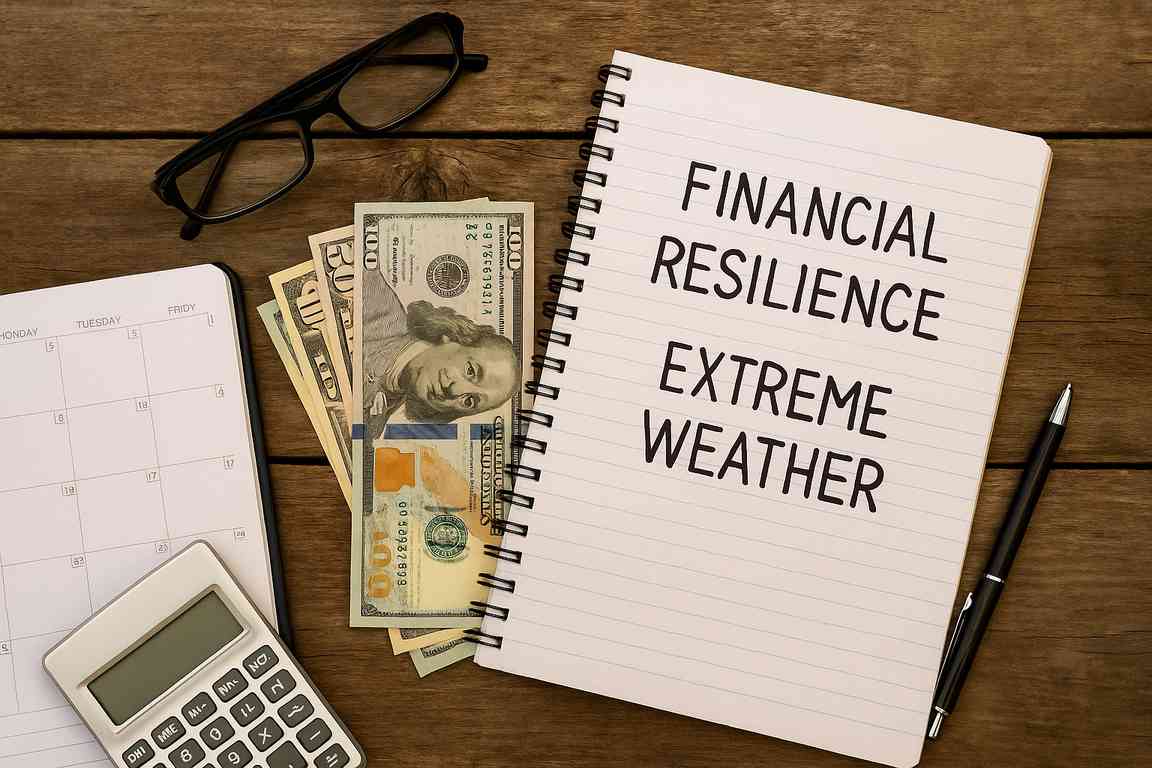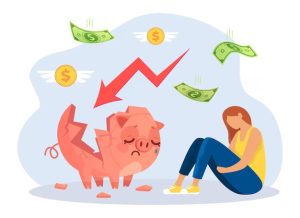In recent years, financial resilience has become a necessity as extreme weather events increasingly impact American lives. These unpredictable calamities challenge individuals to reassess their finances and adapt to new economic realities. Across the country, evolving weather conditions compel people to adopt innovative strategies to secure their financial stability.
From hurricanes on the East Coast to wildfires in the West, natural phenomena highlight the urgent need for financial resilience. Households face mounting pressures to prepare for and recover from disasters, prompting a reevaluation of traditional budgeting practices. This shift not only helps individuals withstand immediate economic impacts but also fortifies future financial security.
Understanding financial resilience in extreme weather

Financial resilience, a cornerstone in the face of adversity, entails having strategies to withstand and recover from economic disruptions. In the context of extreme weather, this often involves setting up emergency funds, reassessing insurance coverage, and diversifying income streams. These adjustments ensure that individuals are better prepared to tackle unexpected costs brought about by natural disasters.
One crucial aspect of financial resilience is proactive financial management. Families are increasingly focusing on creating robust financial plans that include savings set aside specifically for disaster scenarios. Additionally, reviewing insurance policies regularly helps ensure adequate coverage for events that were previously considered unlikely.
Adapting personal finance strategies for weather impact
Americans are redefining their personal finance strategies by placing greater emphasis on liquidity and accessibility of funds. Many are now prioritizing accounts that allow quick withdrawals in emergencies, rather than investments locked in long-term funds. This strategic realignment helps manage short-term needs while minimizing financial strain during recovery periods.
Another significant shift is in the diversification of income. People are exploring side gigs and expanding skill sets to ensure a stable income stream even when primary sources are affected by disasters. This diversification not only boosts financial resilience but also empowers individuals with the flexibility to adapt to various economic scenarios.
Building a robust financial future amid climatic change
Looking towards a future marked by climatic uncertainties, financial resilience remains a pivotal consideration. It involves crafting comprehensive plans that encompass both short-term protections and long-term growth strategies. By integrating budgeting tools, exploring investment opportunities resistant to environmental disruption, and leveraging technology, individuals can enhance their financial foresight.
Moreover, community-focused initiatives are gaining momentum, encouraging collective resilience efforts. Local financial literacy programs and disaster preparedness workshops aim to equip broader communities with knowledge and tools to tackle economic challenges. Such communal support systems enable shared learning and resource pooling, strengthening the financial resilience of entire neighborhoods.
Conclusion on adapting to financial resilience needs
In conclusion, the pressing need for financial resilience in the face of extreme weather is reshaping how Americans approach their money habits. By fostering flexibility and foresight, individuals can protect themselves against immediate and long-term economic challenges. This adaptive behavior not only enhances personal financial security but also contributes to broader community resilience.
The evolution of financial habits in response to extreme weather is a testament to human adaptability and foresight. By staying informed and proactive, Americans can better withstand the shocks of changing climates while securing a stable financial future. The lessons learned from these shifts underscore the importance of resilience as an essential part of modern economic life.




